Vittorio Cottafavi
Nacimiento : 1914-01-30, Modena, Italy
Muerte : 1998-12-14
Historia
Vittorio Cottafavi (30 January 1914 – 14 December 1998) was an Italian film director and screenwriter. He directed 70 films between 1943 and 1985. His film Il diavolo sulle colline was screened in the Un Certain Regard section at the 1985 Cannes Film Festival.

Himself

Director

Director
The story of a peasant girl of fifteen, Mariute, who comes down from the Carnia mountains to the Friulian plains with her mother at the beginning of the summer.

Director

Director
An adaptation of the Aeschylus play.

Director
Vittorio Cottafavi's 1973 television adaptation of Jean Anouih's play on Joan of Arc.

Director
A TV movie adapted from a Pirandello play.

Director
Adaptation of the greek tragedy.

Director
Es una película televisiva de 1971 dirigida por Vittorio Cottafavi y basada en la novela La signora delle camelie de Alexandre Dumas, su hijo.

Director

Director

Director
Película para televisión sobre Oliver Cromwell.

Director
A Vittorio Cottafavi minisseries about Christopher Columbus.

Director

Director

Director
TV film by Vittorio Cottafavi based on the search for the nazi Adolf Eichmann by Simon Wiesenthal.

Director
The trial of Saint Teresa de Lisieux.

Director

Director

Writer
In 1967 the director Vittorio Cottafavi produces the TV movie Le Troiane from Euripides. He uses the classical Italian translation by Enzio Cetrangolo, but creates an original way of film adaptation, inspired by the Brechtian conception of staging the ancient theater. He does not use costume or set design, but is based only on the simple performance of the actors, highlighted by the shooting technique. The absolute sense of tragedy is perceived by the public through emotional engagement and imagination. So, the Trojan war is all the wars and the pain of the Trojan women is the pain of all the victims of any war.

Director
In 1967 the director Vittorio Cottafavi produces the TV movie Le Troiane from Euripides. He uses the classical Italian translation by Enzio Cetrangolo, but creates an original way of film adaptation, inspired by the Brechtian conception of staging the ancient theater. He does not use costume or set design, but is based only on the simple performance of the actors, highlighted by the shooting technique. The absolute sense of tragedy is perceived by the public through emotional engagement and imagination. So, the Trojan war is all the wars and the pain of the Trojan women is the pain of all the victims of any war.

Director

Director
Una mini-serie de televisión sobre la vida de Dante.

Director

Director
A machine that creates poetry causes problems.
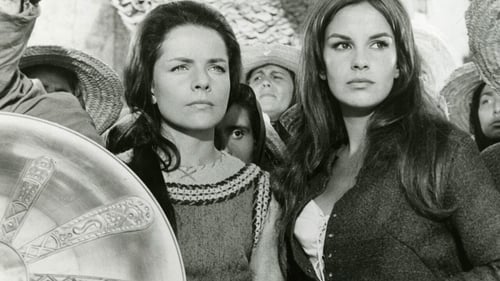
Screenplay
En el año mil, un pueblo cristiano ve turbada su paz con la llegada de los árabes que manda el jeque Abengalbón. El alcalde se excede en atenciones con los enemigos, pese a la oposición de su hija Sancha. Fernando, un joven comerciante, decide marcharse con sus carros cargados de trigo, pero los árabes se lo arrebatan. Poco a poco, los musulmanes van prolongando su estancia en el lugar. Cansados, los campesinos deciden rebelarse, animados por Sancha, pero los árabes aplastan la revuelta. Fernando, acompañado de su padre, regresa para escarmentear a los invasores. (FILMAFFINITY)

Director
En el año mil, un pueblo cristiano ve turbada su paz con la llegada de los árabes que manda el jeque Abengalbón. El alcalde se excede en atenciones con los enemigos, pese a la oposición de su hija Sancha. Fernando, un joven comerciante, decide marcharse con sus carros cargados de trigo, pero los árabes se lo arrebatan. Poco a poco, los musulmanes van prolongando su estancia en el lugar. Cansados, los campesinos deciden rebelarse, animados por Sancha, pero los árabes aplastan la revuelta. Fernando, acompañado de su padre, regresa para escarmentear a los invasores. (FILMAFFINITY)

Director
A man's encounter with his father.

Director
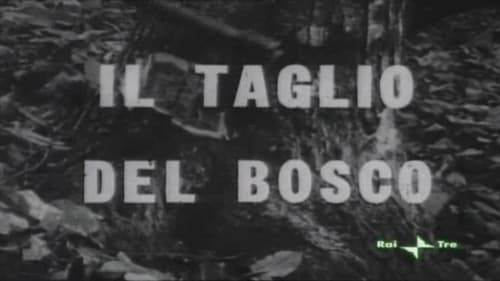
Director
With the participation of the inhabitants of Tirli (GR). RAI television film, based on a short story (1954) by Carlo Cassola and scripted by Marcello Fondato and Giuseppe Lazzari, filmed on location, aired on 19-9-1963. It is the simple story of a group of woodcutters in the Grossetano area with their problems, individual stories, small and big intimate dramas. It is a film with a Rossellini-style realist slant where, without falling into scenicism, the importance of the landscape is combined with the psychological subtlety of the characters and the lucid and critical description of their behaviour. "A phenomenological film that manages to introduce, in the objectivity of the realistic vision, a disturbing moral dimension" (G. Rondolino).

Director
An adaptation of Guglielmo Petroni's book.

Director
A TV adaptation of Friedrich Dürrenmatt's play.

Director
Sci-fi film made for TV by Vittorio Cottafavi.

Director
A television film by Vittorio Cottafavi. It's believed that this TV film has been lost.

Director
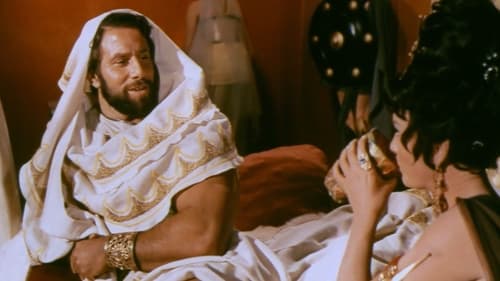
Director
Androcles, rey de Tebas, parte junto al forzudo Hércules rumbo a un destino desconocido: su misión es tratar de abortar una guerra profetizada por un sibilo.

Director
La acción tiene lugar cuando Roma aún no domina Italia. Derrotados sus ejércitos por los pueblos vecinos, los romanos deben entregar a sus jóvenes vírgenes como rehenes.
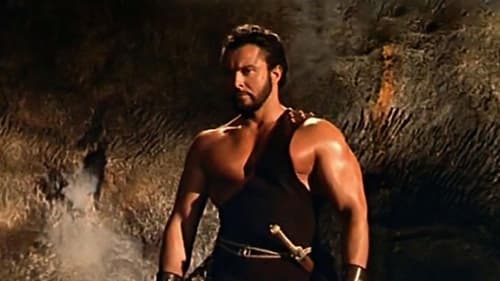
Director
Hércules (o Goliath, según el doblaje) regresa a su hogar tras terminar las doce pruebas a las que fue desafiado por los dioses. Pero poco le dura la calma, ya que tendrá que hacer frente a los insidiosos planes del rey Euritos, quien planea conquistar Tebas, la patria de nuestro héroe.
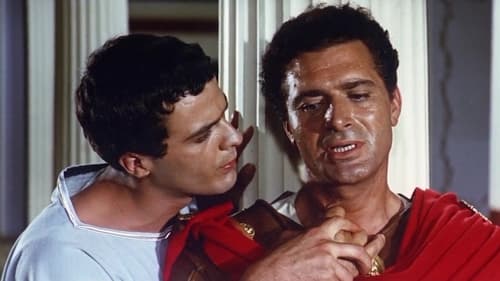
Director
En el siglo I, el Emperador Calígula ha sido asesinado y Claudio es proclamado César. Un noble conspirador pide que Claudia se case con la joven Messalina, esperando manejarla como una marioneta y controlar el trono. Sin embargo Messalina tiene los proyectos para ella misma y mata al noble en cuanto está casada. Mientras, un joven comandante militar llamado Lucius Maximus encuentra a Messalina en los jardines y se enamora de ella, pero ella usa un nombre falso y él no llega a averiguar su identidad. Messalina lo envía a la guerra en Armenia.

Director
An italian-spanish co-production directed by Vittorio Cottafavi.
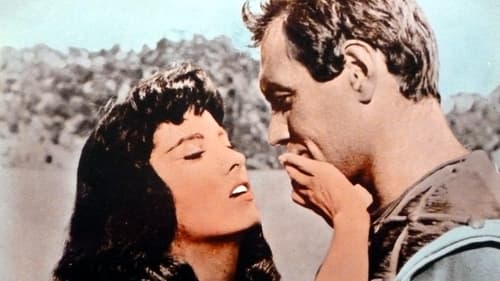
Screenplay
Octavio envía secretamente a su cónsul Curridio a Alejandría en un intento final de alcanzar la paz. En la ciudad, éste se encuentra con Berenice, una misteriosa y bella bailarina de la cual se enamora. En realidad, la bailarina es la reina Cleopatra que lleva una doble vida usando este nombre.

Director
Octavio envía secretamente a su cónsul Curridio a Alejandría en un intento final de alcanzar la paz. En la ciudad, éste se encuentra con Berenice, una misteriosa y bella bailarina de la cual se enamora. En realidad, la bailarina es la reina Cleopatra que lleva una doble vida usando este nombre.

Director
A scientist kills his rival with a perfect alibi and tries to get away with it.

Director
Versión televisiva de la obra de Sófocles.

Director
Durante el siglo II d..C. las fronteras del Imperio Romano se extienden hasta los límites del mundo conocido en aquel entonces. El tribuno Marco Numidio, que lleva una vida ociosa en su villa de Roma, debe ir a Armenia, donde una revolución de gladiadores le está creando no pocos quebraderos de cabeza al viejo gobernador. Pero en Telifonte, la capital de Armenia, le espera una corte llena de víboras, entre las cuales está la princesa Amira.

Director
An adaptation of Dostoevsky's novel.

Director
A TV adaptation of Henrik Ibsen's play.

Director
An adaptation of Molière's play.

Director
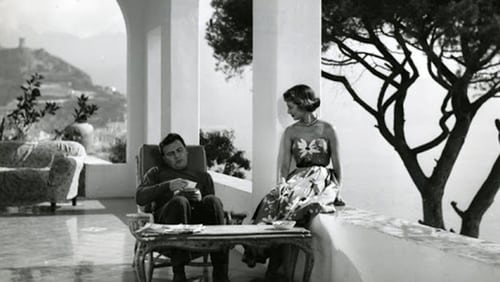
Director
Liana, an architecture graduate, is about to get married until she is confronted with the fact she is sacrificing the rest of her life for a man she barely knows. So begins a series of romantic encounters in which Liana tries to find her freedom and happiness, but which will ultimately lead her to a tragic fate.

Director
After years of detachment Alberto Valli returns to the home of Margherita, his widowed mother, with his mistress Germaine.

Director
Three jailbirds - a surgeon, a robber and a wrongly convicted man must adjust to their lives once released from prison.

Director
Luisa Galli moves to Rome in search of a respectable job, but instead just finds a job as a waitress for the lawyer Giorgi

Director
An engineer has a romance with the mistress of a rich banker but she sacrifices herself,returning to the rich man, for the best interests of the lover and his family.

Director
Il Cavaliere di Maison Rouge is an Italian adventure film directed by Vittorio Cottafavi based on the novel by Alexandre Dumas.

Director
Very stylish Italian swashbuckler - The Three Musketeers from the viewpoint of Milady de Winter

Editor
In 1951, two years after the “scandal” of the Fiamma che non si spegne, Cottafavi got the opportunity to work on a film with a small production company, Novissima Film. With little means, a number of technical and financial problems and working Sundays with the pieces of film given to him bit by bit, Cottafavi shot Una donna ha ucciso, a minor film that marked his comeback to directing. (Gianni Rondolino)

Screenplay
In 1951, two years after the “scandal” of the Fiamma che non si spegne, Cottafavi got the opportunity to work on a film with a small production company, Novissima Film. With little means, a number of technical and financial problems and working Sundays with the pieces of film given to him bit by bit, Cottafavi shot Una donna ha ucciso, a minor film that marked his comeback to directing. (Gianni Rondolino)

Director
In 1951, two years after the “scandal” of the Fiamma che non si spegne, Cottafavi got the opportunity to work on a film with a small production company, Novissima Film. With little means, a number of technical and financial problems and working Sundays with the pieces of film given to him bit by bit, Cottafavi shot Una donna ha ucciso, a minor film that marked his comeback to directing. (Gianni Rondolino)

Screenplay
Inspired to the real story of the Carabiniere Salvo D'Acquisto. We see how, to save 22 hostages from dead sentence by Nazi, he decided to sacrifice himself.

capitano dei carabinieri
Inspired to the real story of the Carabiniere Salvo D'Acquisto. We see how, to save 22 hostages from dead sentence by Nazi, he decided to sacrifice himself.

Director
Inspired to the real story of the Carabiniere Salvo D'Acquisto. We see how, to save 22 hostages from dead sentence by Nazi, he decided to sacrifice himself.

Co-Director
Evocation of a dramatic episode of the Second World War told by an old guard. Boarded as a non-commissioned officer on the battleship sailed from Pola and headed south. In time of danger, the man is forced to sacrifice the lives of seven sailors and the son of the Captain, his good friend, in order to save the rest of the crew.
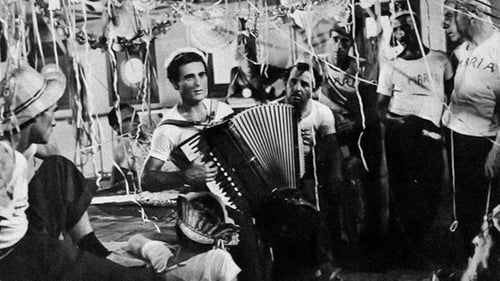
Director
A former war captain buys a wrecked ship, fixes it and starts a freight business with some fellow navy members.

Writer
A former war captain buys a wrecked ship, fixes it and starts a freight business with some fellow navy members.

Screenplay
A mysterious man, who had lost his memory, arrives in San Marino among other refugees during the Second World War.
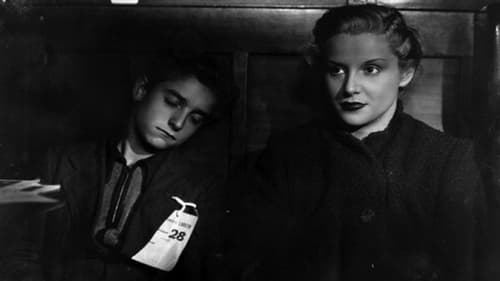
Historia sobre la peregrinación en tren a Loreto de un grupo de enfermos y mutilados.

Screenplay
Leo (Vittorio De Sica) is young man trying to make a living without any success. Through fortuitous circumstances, he is assigned by the director of a big firm to accompany for one night the daughter of the firm's accountant, Titi (María Mercader). Leo pretends then to be the son of a tycoon, and takes her in a luxurious restaurant.

Director
Leo (Vittorio De Sica) is young man trying to make a living without any success. Through fortuitous circumstances, he is assigned by the director of a big firm to accompany for one night the daughter of the firm's accountant, Titi (María Mercader). Leo pretends then to be the son of a tycoon, and takes her in a luxurious restaurant.

Screenplay
The film takes place at the end of the 19th century. The Cardinal Guglielmo Massaia has spent 20 years in Ethiopia to convert people to the Catholic Church. He comes back to Italy and he tries to get the help of the government of Piedmont. The Count Cavour, although he appreciates the Cardinal's deeds in Africa, cannot grant his Cabinet's support to the Cardinal's plans. The missionary man, trusting the Divine Providence, goes back to Africa by himself. The Cardinal, who is known among the people as Abuna Messias, becomes a friend of king Menelik. The support of the king is fundamental to spread his word and accomplish his mission. The Head of the Coptic Church, Abuna Attanasio, does whatever he can to prevent Massaia from reaching his goals and to get him exiled from Ethiopia. Menelik refuses to help Abuna Attanasio, who decides to address the Emperor, thus igniting a war between the Emperor and his subject Menelik. In order to end the war, the Cardinal decides to leave Africa.













